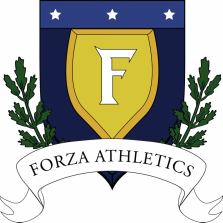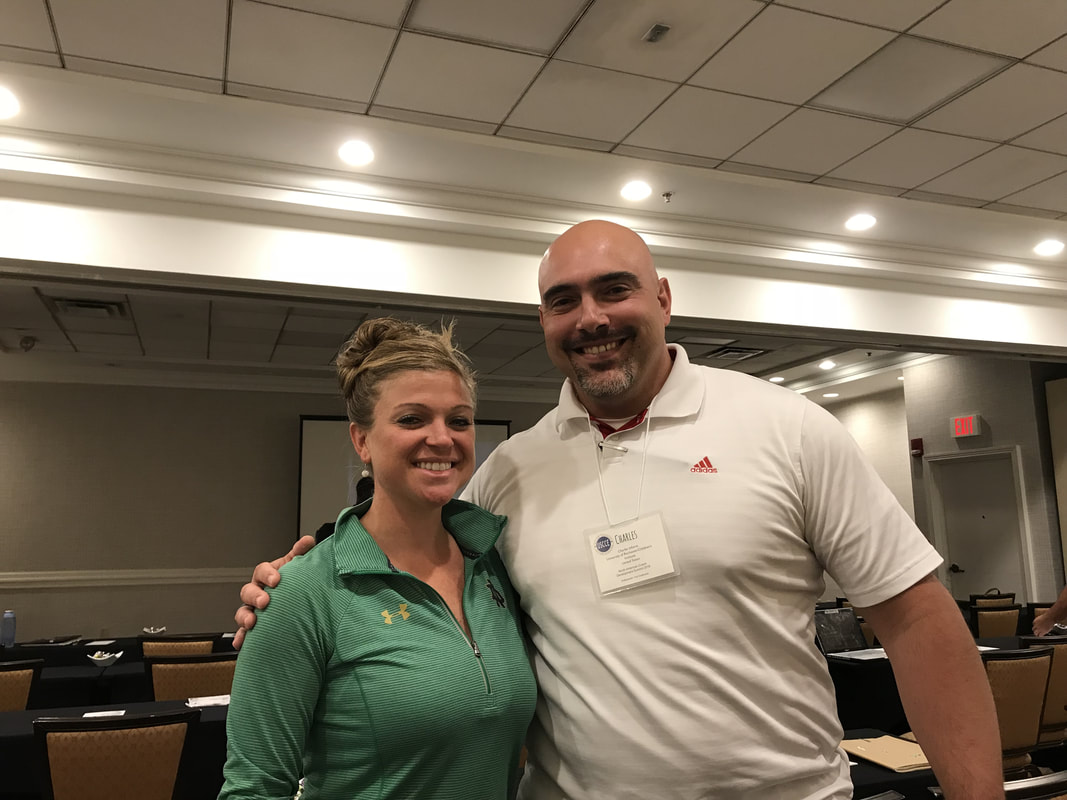|
I just got back from spending the week in Orlando, Florida attending the United States Center for Coaching Excellence (USCCE) conference, learning from the best and brightest minds in the field of sport psychology, trauma informed care for youth athletes, and best practices in the field of athletic coaching. It was the first sport coaching conference that I have attended. The conference brought together over 200 attendees from 10 countries, all individuals and teams focused on improving the field of athletic coaching.
The conference’s theme was to enhance the field of sport coaching specific to youth sports with a focus on trauma informed care and best practices. Other sub-themes were about sport coaching programs at the collegiate level and overseas. I immediately learned that there are only 19 colleges/universities in the United States that offer graduate degrees in athletic coaching. I was aware of one in Missouri (I’ll speak more about the Positive Coaching program later), but I was not aware of the other programs, such as the programs located at the University of Denver and Indiana State. In Western New York, there are a couple of college programs that offer minor’s in coaching, but not full undergraduate degrees in sport coaching. The University of Buffalo offers a graduate degree to doctorate in Exercise Science and Physiology or Kinesiology. Nothing specific to sport coaching. All the presenters were very well prepared, well-versed in their fields, and shared ideas and research topics that I never would have thought of. One of the most interesting presentations I attended was about research in the field of writing gratitude letters to people. A professor from Adams State University shared his research focused on gratitude letters that his students write to people in their lives, thus expressing their gratitude for being an integral part of their life. I found this session most interesting because I started writing letters to my athletes at the conclusion of our season, beginning in the summer of 2005. I did, and continue to, write hand-written notes to my returning athletes. They are only a paragraph or so long, expressing my gratitude for them having been a member of our throwing team, a couple of thoughts about the season, and that I’m looking forward to working with them in the fall. Who knew that I could have started collecting that type of data back in 2005. I’d have 13 years of gratitude data now! The most rewarding experience from the conference was getting to meet a team of very special and talented individuals from the University of Missouri. It was really two years in the making. Back in the summer of 2016, before I defended my dissertation, I reached out to a woman named Amber Lattner, now Amber Selking. I came across a program that she was a part of at the University of Missouri. A coach that I had always looked up to at Missouri, Dr. Rick McGuire, wrote a research and evidence-based program, simply titled Positive Coaching. Dr. McGuire was an integral part of the USATF and USOC. He was one of their lead sport psychologists. He has been a part of Olympic Teams spanning four decades. After a few email exchanges, Amber and I spoke on the phone. I was, and still am, really interested in learning more about the Positive Coaching program she was a part of while a doctoral student at the University of Missouri. It is so fascinating to me that someone can earn a graduate degree in Positive Coaching. Someday I may go back and enroll in the program. You just never know. Anyway, we spoke about the program and how I wanted to make it a part of the Nazareth College coaching culture. My coaching style mirrors that of the Positive Coaching program. We spoke a couple of times on the phone, but with both of our crazy schedules, I was never able to secure a couple of days for Amber or Rick to come out to Rochester and meet with our Athletic Director about integrating the Positive Coaching framework with all our sports programs. As I was walking towards the conference area, I mustered up the courage to interrupt Amber’s lunch, and introduce myself. Even as I’m writing this a week later, I cannot believe that I was able to spend an hour speaking with her about coaching, life, family, sports, and Notre Dame football. Later that afternoon, I introduced myself to Rick McGuire. I’m not sure if this happens to others, but I had about two dozen questions prepared. I knew he was going to be in attendance, but I didn’t think I would have more than five minutes to speak to him. Well, five minutes turned into about five hours. I didn’t get a chance to ask all of my questions because our conversation was much deeper than most of the thoughts I wanted to share with him. Out of respect for our conversation, I won’t go into specific detail about the majority of our conversation. We did spend a lot of time discussing USATF sport psychology, best practices for coaches and athletes specific to how coach-athlete relationships affect athlete performance in the US and abroad, and research focused on USATF and how athletes perform at both the World Championships and Olympic Games. On more than one occasion my wife has accused me of being star struck when attending conferences with high profile individuals, both in the field of education and this conference. Yes, there have been times when I have presented at conferences and met researchers in the field of early childhood education. Most of those researchers were cited in my dissertation and manuscripts. Having those researchers sit in on a presentation was a bit nerve wrecking at first, but it has gotten easier. The same can be said for this conference. Speaking to someone on Twitter for a couple of years or even on the phone does not have the same impression as seeing them in person and getting the chance to speak to them. Especially with someone like Dr. McGuire. I still cannot believe some of the stories he shared when traveling with certain athletes during the Olympics. And there he was. Standing next to me. For well over three hours. Talking about life, sports, family, and coaching. I cannot thank Kristen Dieffenbach, PhD, and her team enough for putting on such a great conference with so many experts in the field of sports psychology and coaching education all under one roof. I definitely appreciated the location. Most early childhood education conferences I attend are usually in the Northeast. Traveling to Orlando for a conference was fantastic. I’m very much looking forward to the conference next year. I will absolutely be submitting a couple of abstracts of the current research I’m conducting focused on coach-athlete relationships and college athlete perceptions of their relationships with their coaches. For more information about the United States Center for Coaching Excellence you can click on the following link that will direct you to their homepage https://www.uscoachexcellence.org For more information about Positive Coaching from the University of Missouri, you can click on the following link https://education.missouri.edu/positivecoaching/. Coach, Brian, Bryan, and Amber, thank you for embracing me and making me feel a-part of your Positive Coaching family! I’m not sure if I’ll ever be able to repay your kindness and generosity.
1 Comment
5/11/2019 12:52:04 pm
I do not have a lot of personal friends, however, I do have a lot of virtual friends. For those of you who are not familiar with the concept, virtual friends are those that you know from the internet. Sure, people might think that I am a boring person, but at least I am not faking it. I enjoy having friends from the internet, at least they do not judge me. I hope that I can meet them very soon.
Reply
Leave a Reply. |
Dr. Charles InfurnaCharles Infurna, Ed.D., is the owner and lead coach of Forza Athletics Track Club. Dr. Infurna has coached National Record Holders, National Champions, All-Americans, and Conference Champions at the Post-Collegiate, Collegiate, and High School level. Archives
January 2023
Categories |


 RSS Feed
RSS Feed